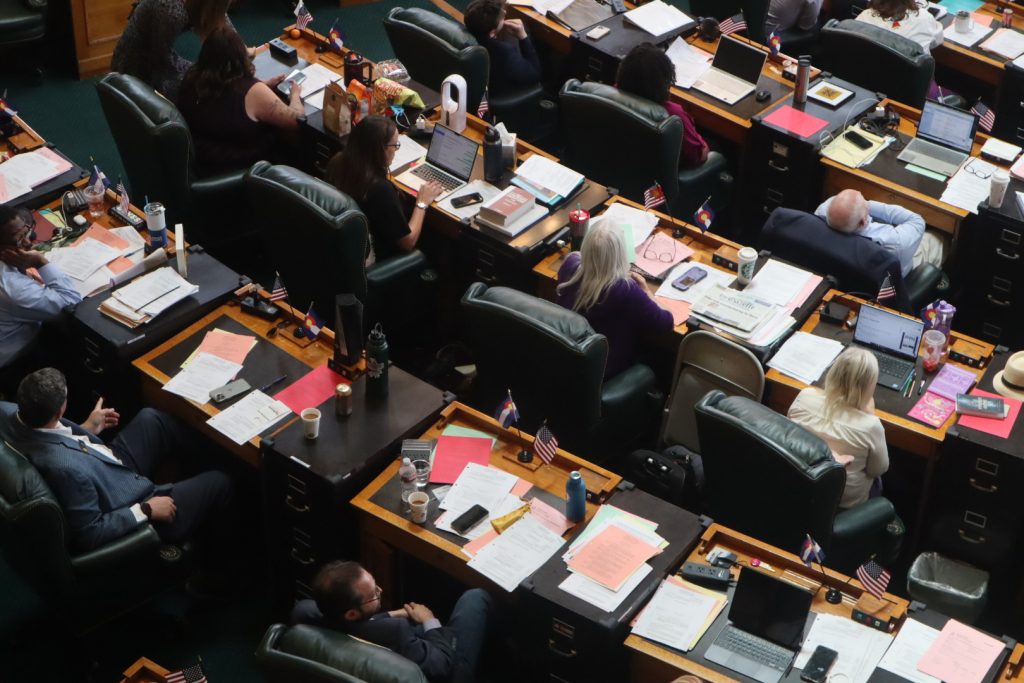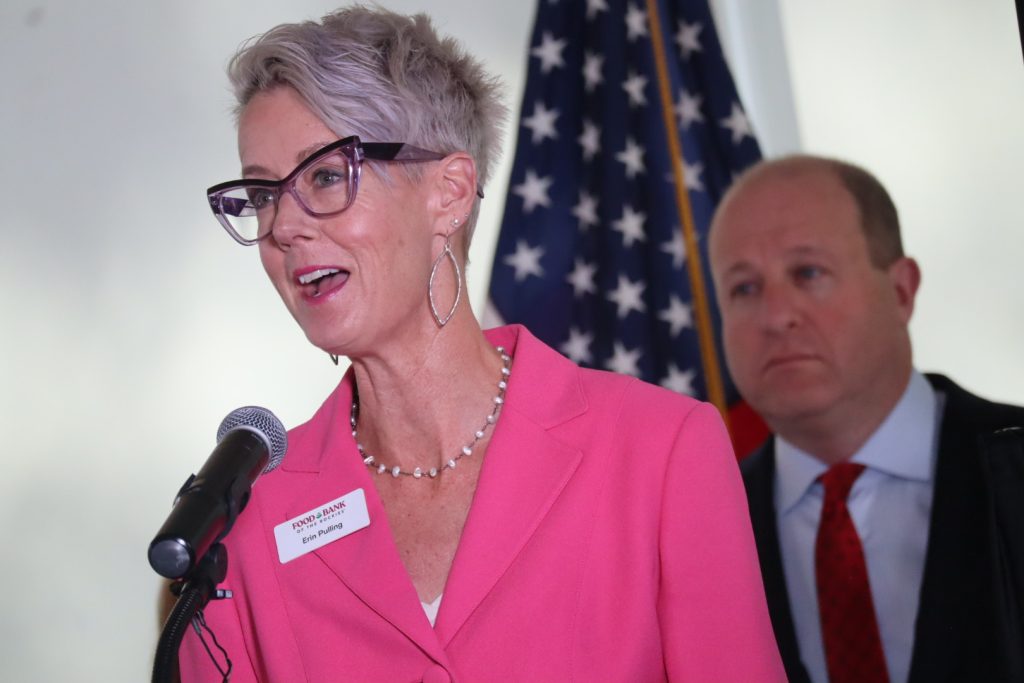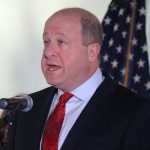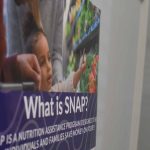Colorado lawmakers OK Polis’ $10 million request for food banks, as federal judge rules SNAP payments must continue
Government shutdown means more than 600,000 Coloradans will go without food assistance benefits starting Nov. 1.

Robert Tann/The Aspen Times
In anticipation of federal food assistance ending on Nov. 1, Colorado lawmakers on Thursday, Oct. 30, approved $10 million in funding for food banks to help meet what is expected to be a wave of demand.
Gov. Jared Polis requested the funding last week from the Joint Budget Committee, a six-member group of lawmakers who review funding requests. He also asked for a continuation of state funding for the Special Supplemental Nutrition Program for Women, Infants, and Children, or WIC, which lawmakers also approved.
The additional funds are aimed at mitigating the expected rise in food demand from hundreds of thousands of Coloradans who rely on the Supplemental Nutrition Assistance Program, or SNAP.
Due to the federal government shutdown, funding for SNAP was scheduled lapsed on Nov. 1, meaning recipients will not receive their monthly allotments used to purchase food at grocery stores, farmers markets and other sites. Roughly 1 in 10 Coloradans — more than 600,000 residents — use SNAP, and more than half of those are children.
Judge orders SNAP payments to continue in last-minute ruling
A federal judge ordered the Trump administration on Friday to continue paying for food stamps during the government shutdown, siding with local officials and nonprofits that had sought to spare millions of low-income Americans from losing benefits in a matter of days.
It was the second of two rulings in the span of about an hour that found the administration had acted unlawfully, after it had refused to tap an emergency reserve — enacted by Congress and totaling in the billions of dollars — to sustain the nation’s largest anti-hunger program.
But it remained unclear if or when food stamps would actually reach the roughly 42 million people who rely on monthly federal help to purchase groceries. Taking to social media, President Trump said late Friday that his administration would release the funds only once it received “appropriate legal direction” from the court, as he warned that any food stamp benefits paid in November would “unfortunately be delayed.”
Nor was it certain the exact amounts that food stamp recipients would receive in November. The emergency funds alone are enough to provide only partial benefits, according to federal officials, raising the odds of another financial cliff for millions of low-income Americans unless Congress can quickly devise an end to the current stalemate.
Future remains unclear, as Colorado takes action
Republicans and Democrats in Congress remain at odds over government funding. At the heart of the shutdown fight is a demand by Democrats to extend health insurance subsidies that are set to expire at the end of this year. Without those subsidies, health insurance plans purchased on the individual marketplace are slated to double on average in Colorado.
Republicans have refused to negotiate on the health insurance issue until after the government is reopened. Most Senate Democrats have voted more than a dozen times to kill the GOP’s government funding proposal because it does not extend the insurance subsidies.
In a statement on Thursday, Colorado Joint Budget Committee Chair Jeff Bridges, a Democratic state senator from Arapahoe County, said that “regardless of what’s happening in Washington, Colorado is stepping up to keep families fed and kids healthy.
“This is what responsible budgeting looks like,” Bridges said. “Focusing on results, not rhetoric, and doing what’s right for the people we represent. For the sake of families across our state and nation, I wish DC would act a bit more like Colorado.”
While the $10 million in state funding won’t be enough to offset the $120 million in SNAP payments Coloradans receive every month from the federal government, officials hope it can bolster food banks’ buying power.
Since food banks can buy food at scale and for a discounted price, every $1 donated usually translates to $5 or more in buying power, making the true funding impact closer to $50 million.
The state plans to allocate the funding to Feeding Colorado, the parent organization of the state’s five largest food banks, which also partners with over 1,000 hunger-relief organizations and nonprofits throughout the state.

How would the state money be distributed?
The money will go out in $3.3 million increments every two weeks through the beginning of December. If the government shutdown continues beyond that, Polis and lawmakers may need to consider additional action.
He is also calling on Coloradans to donate money directly to FeedingColorado, which they can do by going to FeedingColorado.org/donate.
Polis on Thursday applauded lawmakers for approving his funding request for food banks and also reminded families with children in school to take advantage of the state’s Healthy School Meals for All Program. The program provides free school breakfast and lunch every day to all children, regardless of income.
Colorado is also one of 25 states suing the Trump administration over its decision not to tap emergency funding to keep SNAP program payments flowing after Nov. 1.
The administration said it cannot use emergency funding for benefits in the 2026 fiscal year budget — the one Republicans and Democrats have so far failed to pass — because those benefits haven’t been renewed and “no longer exist.”
Colorado Attorney General Phil Weiser, in a statement announcing the lawsuit on Tuesday, argued the federal government is required to make SNAP payments to those who qualify for the program.

Support Local Journalism

Support Local Journalism
The Sky-Hi News strives to deliver powerful stories that spark emotion and focus on the place we live.
Over the past year, contributions from readers like you helped to fund some of our most important reporting, including coverage of the East Troublesome Fire.
If you value local journalism, consider making a contribution to our newsroom in support of the work we do.









